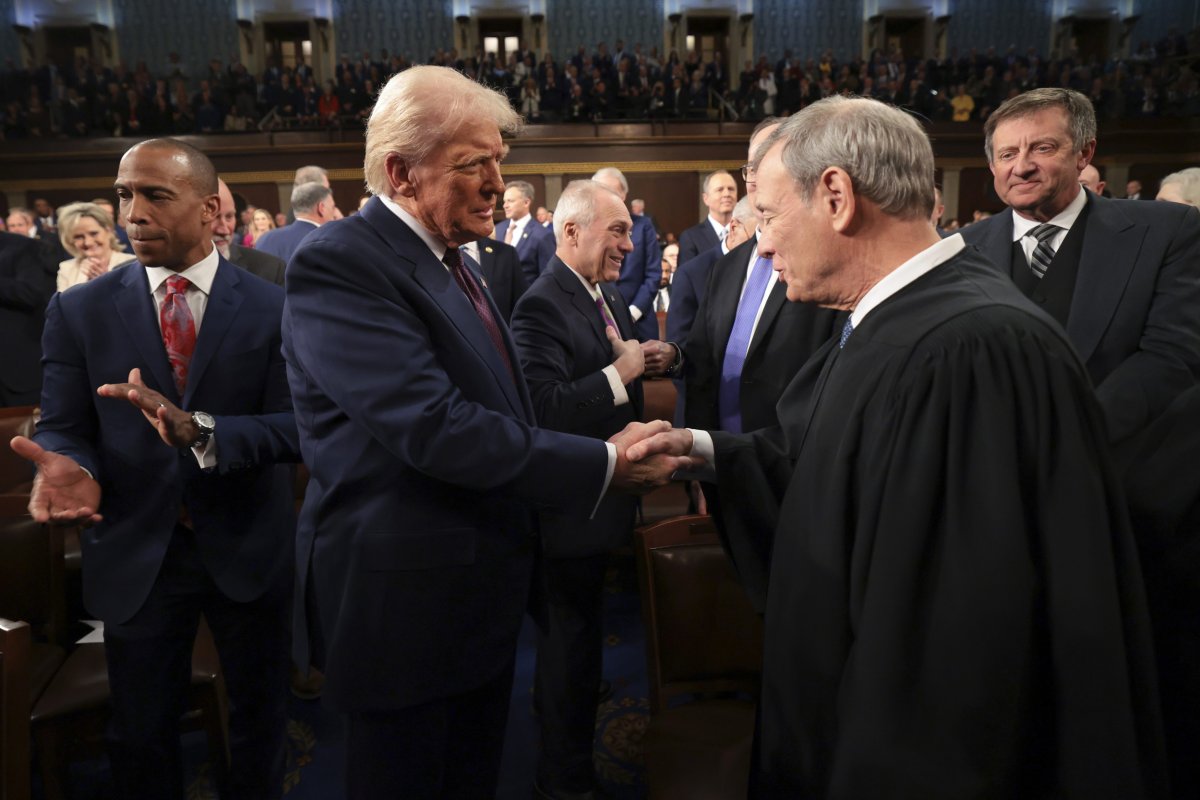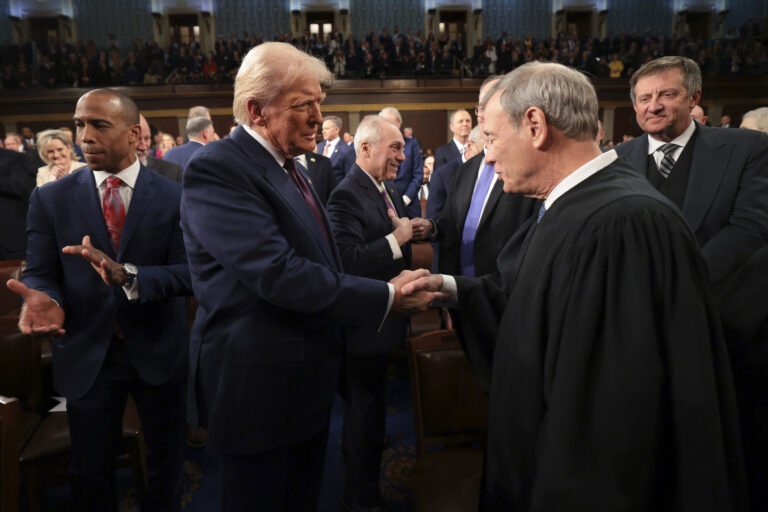The Supreme Court on Friday declined to fast-track a legal challenge to President Donald Trump’s tariffs, rejecting a motion to expedite the case and delaying consideration despite a push from affected companies.
Why It Matters
Trump announced a slate of tariffs in April as part of “Liberation Day,” which the president promised would reshape the global trade to be more favorable to the United States. The tariffs hit almost every U.S. trading partner and prompted global market turmoil.
Trump ultimately backtracked on his initial announcement after saying many of those countries impacted by the tariffs reached out to negotiate. The U.S. tariff policy has continued to evolve over the following two months.
The U.S. Court of International Trade then blocked Trump’s tariffs, which was in turn stayed by a federal appeals court, which allowed the tariffs to remain in place while legal proceedings play out.

Associated Press
What To Know
Chicago-based toy companies, including Learning Resources Inc., challenged Trump’s tariffs and scored an early win in the lower courts, but the administration has appealed the decision, which is pending in appeals courts. In the meantime, any effect of the ruling is on hold.
The companies in a bid to find quick resolution and relief from the tariffs filed an appeal for the Supreme Court to take up the case ahead of any decision from an appeals court – a long shot for any legal challenge.
The Supreme Court on Friday returned with a decision to not fast-track the case per the appeal and allow the lower court to make its decisions first.
Learning Resources CEO Rick Woldenberg said tariffs and uncertainty are taking a major toll on the company, telling The Associated Press that prices are going up and manufacturers “absolutely do not have a choice” and that a “sense of dread” pervades.
What People Are Saying
White House Spokesperson Kush Desai told The Associated Press: “”The Trump administration is legally using the powers granted to the executive branch by the Constitution and Congress to address our country’s national emergencies of persistent goods trade deficits and drug trafficking. If the Supreme Court decides to hear this unfounded legal challenge, we look forward to ultimately prevailing.”
This is a breaking news story. Updates to follow.
This article includes reporting by The Associated Press.
Update 6/20/25, 2:13 p.m. ET: This article has been updated with additional information.


